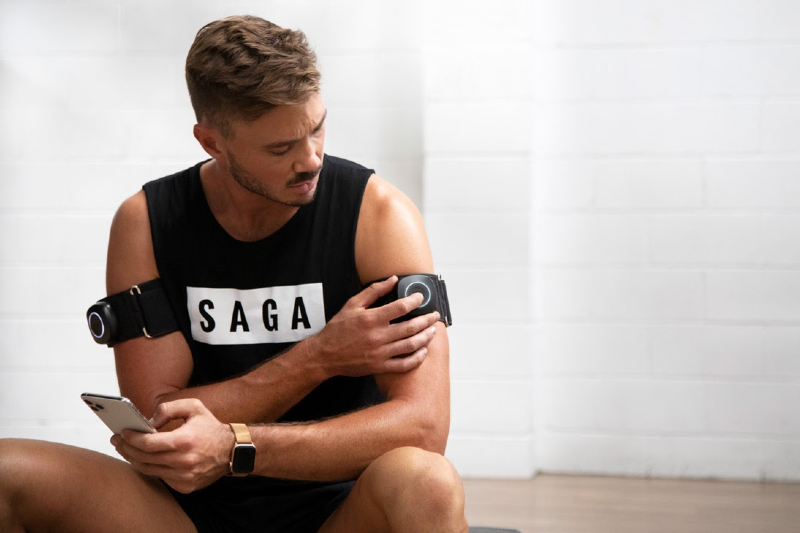
We all work hard. With myriad obligations, sometimes there aren’t enough hours in the day to get in a nice long workout. Heck, sometimes there’s not even enough time to eat.
In response, blood flow restriction cuffs are popular training tools among professionals. BFR reduces blood flow to the arm or leg using a cuff or strap wrapped tightly around limbs. Developed over the last two decades by medical professionals aiming for quicker athletic rehabilitation, and eventually by celebrities looking for more efficient workouts, BFR cuffs are now mainstream for busy achievers.
SAGA Fitness is taking that concept to the next level with the world’s first wireless, automated training cuffs.
Aligned to smartphones, SAGA BFR cuffs easily add exact restrictions to any workout allowing you to do shorter workouts with better results via automatic Bluetooth calibration and occlusion (blockage) adjustment on SAGA’s mobile app.
Related Guides
- Best Workout Routine for Men
- The Beginner’s Guide to Weight Training
- Best Upper Body Workouts
- How to Boost Your Workout Recovery
Muscles grow when a person challenges the tissue to deal with higher levels of resistance or weight. This process is known as muscle hypertrophy, which occurs when muscle fibers sustain damage or injury. The body repairs these damaged fibers by fusing them, increasing muscle mass and size. Certain hormones, including testosterone, human growth hormone, and insulin growth factor, play major roles in hypertrophic repair.
From a hormonal standpoint, these growth hormones increase with high load, high-volume multi-joint exercises, which are all activated during normal high-load training. In other words, we need high-intensity workouts to get strong. The benefit of BFR training is that it allows for lower load exercises with high-load benefits.
By limiting the amount of blood flow, BFR allows individuals to work out at a similar intensity with less stress or resistance limbs while still achieving muscle growth. Medical studies have shown BFR training to help attenuate muscle atrophy, enhance hypertrophy, increase strength, and improve aerobic capacity, all in a low-load environment.
Of course, with any workout, safety needs to be a consideration. BFR training has not, to date, resulted in serious adverse events for people without prior medical conditions. Studies did reveal common but short-lived BFR side effects like numbness, discomfort, abrasions, and delayed onset muscle soreness. Using SAGA’s innovative tech, however, helps to reduce these effects with high-quality, comfortable materials aligned online to user settings and goals.
SAGA BFR cuffs are now available for $309 at Buy Now . Along with your two, paired bracelets, each featuring a mobile module attached to a Velcro loop, SAGA includes care and use instructions. Cuffs can be charged with an enclosed USB-C dual charging cable and carried in a stylish mesh bag travel case.
Read More: The DASH Diet for Men



